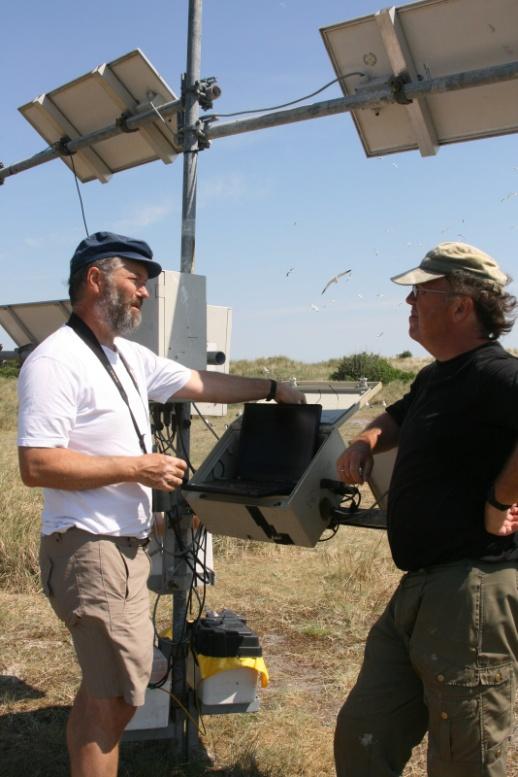Availability of GPS trackers for scientific research
In summer 2008 we did the first tests with our newly developed GPS trackers. Seven years later, we had many collaborative research projects all over the world and together we have tagged more than 1200 birds which have produced more than 50,000,000 fixes in total. Our tags have been deployed on more than 30 species including:
- Black-Tailed Godwit, Barnacle Goose, Brent Goose, Common Buzzard, and Oystercatchers in the Netherlands
- Black Cockatoo in western Australia)
- Caspian Tern in Sweden and Senegal
- Crab Plover in Oman
- Egyptian Vulture on Fuerteventura
- Eleanora’s Falcon on Alegranza
- Griffon Vulture in France and Spain
- Herring Gull in the Netherlands, Belgium UK and Spain
- Honey Buzzard in the Netherlands and Finland
- Lesser Black-backed Gull in the Netherlands, Belgium, UK and Sweden
- Montagu’s Harrier in the Netherlands, Denmark, France and Senegal
- Red Kite in Luxemburg and Italy
- Royal Tern in Senegal
- Stone Curlew in Israel
- Verreaux’s Eagle in South Africa

Many publications have appeared on research using UvA-BiTS, and many more are underway.
As our ambition was to develop collaborative research, we did not sell UvA-BiTS or commercial purposes. Since 2023, we are no longer producing UvA-BiTS tags for external use. However, our services are still available for all of our users and there are active trackers and projects still measuring bird movement.
In general our partners are responsible for fieldwork, tagging birds, permits and maintenance of the system in the field. We take care of data post-processing and data preservation. We also help with designing the best configuration, control of the system. The virtual lab is available for our partners , facilitating data visualization, exploration and and analyses. Our research focuses on the movement ecology of birds. We study migration and local movements, among others flight strategies in relation to weather conditions and landscape properties. We have a lot of experience with running the GPS system and with (automated) analysis of data.
